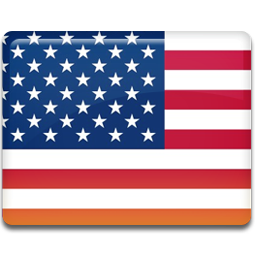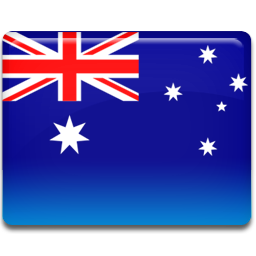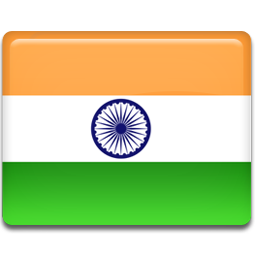Cargo Surveying Professional Diploma
Bunker Surveying
- Course Program
- Who Should Attend
- Compliance with regulations
- Duration and Teaching Methods
- Course Benefits
- RPL
- Course Content
- Certification
Introduction
Large amounts of bunker fuel are consumed each year by the world fleet of cargo and commercial vessels as well as the military ones. About 80% of the total bunker fuel relates to heavy fuel oil and until the first large oil crisis in the early 1970s, shipowners did not pay much attention to where to take the bunkers.
The price was quite low, quality was generally high, and whenever possible bunkers was taken on board at port during cargo operations.
Later in the 1970s and during the early 1980s – when prices had risen substantially – more focus was placed on price and actual supply possibilities. Since then bunker prices constantly fluctuate due to market forces and the cost of crude oil. The bunker market became extremely price sensitive with ships often basing decisions on where to bunker on the relative price of fuel available in respective ports.
In the summer of 2008, the effect of high fuel costs has never been so important. At a time of rising oil prices, improved trading technology and ever stricter environmental regulations, it is by far the biggest expenses involved in running a fleet, which forced the world's largest container shipping company Maersk to initiate slow steaming practices in order to reduce bunker consumption and total fuel cost. This was particularly relevant in the context where bunker prices quadrupled between 2001 and 2008.
Nowadays although the drop in oil price has led to a fall in operational cost of a vessel, bunker fuel - especially when the more expensive distillate is used in an Emission Control Area (ECA) is one of the largest operating expense incurred in a Time Charter voyage. With such high costs involved, it becomes imperative for the charterers to know the exact bunker quantity onboard at the time of supplying bunkers, Ship’s delivery or vessel’s redelivery and Ship’s Being "off-hired".
For that reason Bunker Survey, also known as Bunker Quantity Survey (BQS), Bunker loss/disputes investigations, On/Off hire rob survey, or Bunker detective survey (221B) is carried out to accurately measure, and ascertain the quantity of Bunker on board at the specific time and forms a critical part of preventing bunkering malpractices.
The malpractices during bunkering operations though quite prevalent with bunker suppliers; but on many occasion the receiving vessel will be as much as involved as the supplier in these dubious practices. Often it is found that the vessel would under-declare fuel quantity which is then either sold back to the barge supplier or simply kept hidden on the vessel until an opportunity comes along to profit from this.
Since bunkers are sold by weight but delivered in volume, it is important to ensure that the right professional surveyor is appointed taking in consideration his important role in the bunker delivery process for containing bunker fuel losses. During this process where measurements has to be carried out diligently, failing to do so can compromise the owners/charterers’ rights and there are many factors that can contribute to errors like incorrect temperature, density etc. and these errors can be compounded quickly giving rise to large errors in the final quantity of mass delivered. In other words, the final results will only be as good as the surveyor who performed the calculations.
On the other side, loss prevention during bunker stemming largely depends on the hands-on approach and practical experience of bunker surveyors and in order to find concealed fuel someone qualified has to go on board the vessel and get their hands dirty essentially looking for magic pipes, altered pipe lengths, unauthorized connections, non-class approved or altered sounding tables, tampered gauging equipment, doctored fuel gauges, higher consumption from the recent voyage etc.
An experienced surveyor can prevent the supplier from employing “tricks-of-the-trade” to cheat buyers because an investigative remaining-on-board survey entails finding hidden bunkers as well as the investigation of shortages or alleged “cappuccino” during bunkering operations.
Even when an approved mass flow metering (MFM) systems for marine fuel oil deliveries is used, the bunker surveyor’s role is still critical in ensuring compliance during bunkering processes, but in particular regard to MFMs, ensuring that meters are reset to zero before commencement of bunkering, and ensuring that there is no possibility of bypassing the meters.
The integrity of the measurement process relies on ensuring that the whole delivery system, and not just the meter, is completely secure.
It is the intention of this course to extend the student’s knowledge and understanding of the Standard Code of Practice for Bunkering – SS600 and make you a properly qualified expert in bunker surveying able to deal with the malpractices techniques.
Remember a bunker surveyor is trying to find something in a very short time that the Ship’s staff have planned and devised during the entire voyage. Surveyors may find resistance and abuse to demands like opening manholes, dismantling pipes etc.,
Objectives
This course has been designed to train participants to carry out bunker surveying to comply with the requirements, procedures and documentation in accordance with the Standard SS600:2014 — Code of Practice for Bunkering.
It also provides appropriate instructions for their daily work as well as possible responses to scenarios and issues Bunker Surveyors or Cargo Officers might face with Mass Flow Metering in bunkering, with reference to TR 48:2015 Technical Reference.
Anyone who services the bunker trade market and feels they would benefit from a more structured knowledge of the elements of commodities trade and inspections will find the course extremely beneficial.
Minimum Entry Requirements
There are no prerequisites for this Course, however, in order to fully benefit from the training, it is recommended that the participants are either new entrants to the shipping industry or professional staff in shipping companies, ship brokers, port agencies, insurance inspectors, banks and similar service organisations can gain a valuable understanding of their customers' roles and responsibilities.The comprehensive documentation that accompanies the course has been designed as a useful guide for future reference.
Who Should Attend
The Maritime field is extremely broad and brings about relationships with a variety of people with varying levels of experience from the many different aspects of shipping therefore this Course is suitable for a broad range of maritime related professionals and regularly attracts ships’ officers and shore-based management staff.But the course is also valuable to Classification Societies, Marine Insurers, P&I Club Managers, Port Authorities and Coast Guard personnel amongst others.
The course is conducted online and provides a wonderful chance to build your international professional network without having to afford any travel expenses. Often more than 10 nationalities participate and are introduced to each other thanks to our education portal features.
- Producers, Traders or Commodities Brokers and Suppliers
- Ship agent, Shipbrokers
- Shipowners, Charterers, Shippers and Maritime Attorneys
- Purchasers and Technical Managers and Superintendents
- Captains, Chief Engineers and Ship Staff
- Insurance Company Underwriters, Claims Handlers, and Members of the Legal Profession
- Service providers, Surveyors, Inspectors, Analysts, Technical Advisers
- Practicing Cargo Agents, Freight Forwarders, Shipping Industry Starters, Cargo Consolidators
- Other professionals.
Course Benefits
Whichever way you choose to take the course, you will receive:Professional-Level Digital Badge
Digital badges are web-enabled versions of a credential, certification or learning outcome that can provide valid verification of your credential. They protect the integrity of your credential by providing a link to the verified data from IMA that cannot be falsified. Earners can share their credentials in their email signature, resumes and across various social media platforms, with their contacts, and the greater community enhancing their profile visibility and recognition.Tutors Gateway
Our tutors are renowned trainers and managers with strong academic and industry backgrounds, with sector-specific skills and practical experience. They are therefore able to bring a wealth of up to date experience and competency.High Quality Learning Materials
All participants in this course will be provided with a wealth of documentation, including slide presentations, case studies and exercises. The course material is current and accurate and is regarded as the most comprehensive study material of its kind at this level.Career and Employability Service (12 Months)
Participation in this course will entitle you to have your CV inserted in the IMA database and distributed to companies, organizations and head hunters of the IMA’s international network. With our certificates, the student has the chance to apply with leading companies in the shipping industry and gain access to work-experience placement opportunities. After you finish your course, you can get help, advice, and support for up to 12 months from our Careers and Employability service as you advance in your career.Registration in the IMA Alumni Portal
Participation in the Advanced Diploma’s course entitles you to be enrolled in the IMA Alumni Association, the international network through which students of the IMA can share ideas, experiences, and projects.IAMCS Associate Professional Membership
As a direct benefit of our accreditation from the International Association of Marine Consultants and Surveyors, students will receive exemptions from the academic requirements for associate membership level of IAMCSCourse Content
This Diploma comprises a core unit and a specialisation one :
| UNIT OF COMPETENCY CODE |
COURSE TITLE |
NOMINAL HOURS | TEXTBOOK | TRAINING TOPICS |
|---|---|---|---|---|
| CS001 | MARINE CARGO SURVEY PRACTICES | 52 | VIEW DETAILS | VIEW DETAILS |
| UNIT OF COMPETENCY CODE |
COURSE TITLE |
NOMINAL HOURS | TEXTBOOK | TRAINING TOPICS |
|---|---|---|---|---|
| CS011I | BUNKER SURVEYING | 52 | VIEW DETAILS | VIEW DETAILS |
Duration
Each module is expected to involve 6 hours of learning time each week, making a total of 52 hours per 2 months period and the associated tests might be completed in less than 2 hours.The training sections don’t have to be completed in one session, you may return to it as often as you like, the system will bookmark your last page so you are returned directly to where you exited the program.
Timeframe
This course will remain open for 4 months for completion or revision starting from the date of course uploading on the student portal.One or more extensions of study totaling not more than 3 months may be requested by a student and authorised by the Course Director. The request should be made at least one day prior to the end of the period of study.
Further extensions are used where exceptional circumstances necessitate an extension of the normal period of study in order to complete the final test. An agreed extension may involve the payment of small additional fees.
Teaching Methods
In line with the IMA’s general approach and the best international standards, the course is designed with the aim of providing excellent training with an emphasis on its concrete application in the job, professional and company principal related activities.The training include a course framework (detailing the scope, objective, entry standards, and other information about the course), a course outline (timetable), a detailed teaching syllabus (including the learning objectives that should have been achieved when the course has been completed by students), guidance notes and summary of how the students will be evaluated.
The course involves mainly independent study with the assistance of the educational team; study time, in general, is to be spent on activities such as studying the lecture course material and textbooks and preparing your coursework in order to be ready to take the final test.
Your progress in the subjects taught will be tested and consolidated through exercises related to actual cargo surveying cases.
Modes of attendance
This course can be attended only:Online, via a cutting-edge web platform.
Compliance with regulations
International Maritime Academy is an accredited training institution by the International Association of Marine Consultants and Surveyors. The IMA methodology and tools are based upon long-term experience in development of training programs and best practices while ensuring compliance with maritime codes, conventions and regulations in the shipping industry.This course is intended to facilitate access to the knowledge and skills demanded by increasingly sophisticated maritime technology, it is also designed to meet the requirements of:
- The procedures and documentation in accordance with the Standard SS600:2014 — Code of Practice for Bunkering.
- TR 48 : 2015 Technical Reference for Bunker Mass Flow Metering.
Assessment
Advanced Diploma level units are assessed by:- Coursework, dissertations
- Analysis of topical case studies
- Written reports
- Online examination.
- Helping students in course selection and program planning.
- Consulting and advising students on long-term career goals.
- Consulting and supervising online coursework related to subjects we provide training in.
- Helping students with questions through email or over the phone at a convenient time.
- We often provide students with extra eBooks, free study resources, and extra practice sheets.
- Students are encouraged to contact the education support team, who strive to address learning needs creatively and with care while you are completing the course.
- Enhanced workers prospect for career advancement in the shipping industry through a structured progression program and pathway.
- Provide the trained workforce with skills and industry recognised formal qualifications
Certification
On successful completion of the course, you will be rewarded with a Diploma in Cargo Surveying. Those participants who could not complete the training will be rewarded depending on their current achievements with either the Diploma or Certificates on the completed subjects.RPL & Skills Recognition
Sometimes an experience is more valuable than a qualification. Thanks to Recognition of Prior Learning or, RPL, now your previous skills, experience and working knowledge can lessen the time it takes you to complete a course and get you working towards your career goals faster. It can be difficult to find the time and effort to fit an entire course into our lives, especially for those already working and juggling other commitments. Despite the convenience of online courses, there can still be an issue with time. This is where Recognition of Prior Learning (RPL) comes into play, where your previous skills, experience or qualifications can shorten the time it takes to undergo a course and allow you to become eligible for qualifications you may not otherwise be able to do. For instance, you can use RPL to claim some but not all credits on a level of the course (for example, to avoid completing a module that covers the knowledge you already have).Sources of RPL
RPL can come from previous study, employment, voluntary work and training courses, including courses and qualifications you didn't complete. RPL is also known as prior learning assessment (PLA) and prior learning assessment and recognition (PLAR).Types of RPL
There are 3 types of RPL you can put towards a qualification:1. Credit transfer
2. Prior certificated learning
3. Prior experiential learning
You can put more than one of these types of RPL towards a qualification.
1. Credit transfer
Credit transfer is when you put credits from a previous higher education qualification towards a new qualification. We can accept credits from qualifications you've completed in the last 10 years.Higher education qualifications include Professional Certificates, Professional Diplomas, Foundation and Bachelor's degrees, HNC and HNDs, and Master's degrees issued after the successful achievement of either web-based distance learning programs or traditional classroom education.
If you started but didn't complete a higher education course or you have a higher education qualification or credits from an educational institution, you may be able to use prior certified learning (see below) instead of credit transfer.
2. Prior certificated learning
Prior certificated learning is a higher level learning that didn't result in a higher education qualification or credits.This can include professional development and employment-based awards, qualifications awarded by professional bodies, non-university higher education, unaccredited institutions of higher education, and university courses you didn't complete.
3. Prior experiential learning
Prior experiential learning relates to knowledge and skills you've gained through previous marine industry experience. For example, through employment or voluntary work.Applying for RPL
The way you apply for RPL depends on the type of RPL you want to put towards your qualification.Before you apply for RPL, you need to have applied for your course or be registered on it. Details of how to apply will be confirmed by the course's RPL advisor.
Applying for credit transfer RPL
To transfer credits from a previous higher education level qualification towards a new qualification, complete this form RPL Application Form and send it to info@internationalmaritimetrainingacademy.eu.Applying for prior certificated learning and prior experiential learning RPL
To convert prior certificated learning and prior experiential learning into credits you can put towards a qualification, you'll need to put together a portfolio of evidence with your application.To do this, complete this form RPL Application Form and send it with your portfolio of evidence to info@internationalmaritimetrainingacademy.eu. We'll put you in touch with your course's RPL advisor. Defence forces training and experience:
Some defence forces training and experience have standard RPL credit ratings and won't need a portfolio of evidence.
Getting a decision
You'll get a decision on your application for RPL within 3 working days of submitting your form.If you don't agree with the decision, you can appeal it by emailing info@internationalmaritimetrainingacademy.eu.
How much does RPL cost?
Applying for RPL is free for all of our courses.Copyright © 2019 LLOYD'S MARITIME INSTITUTE .










